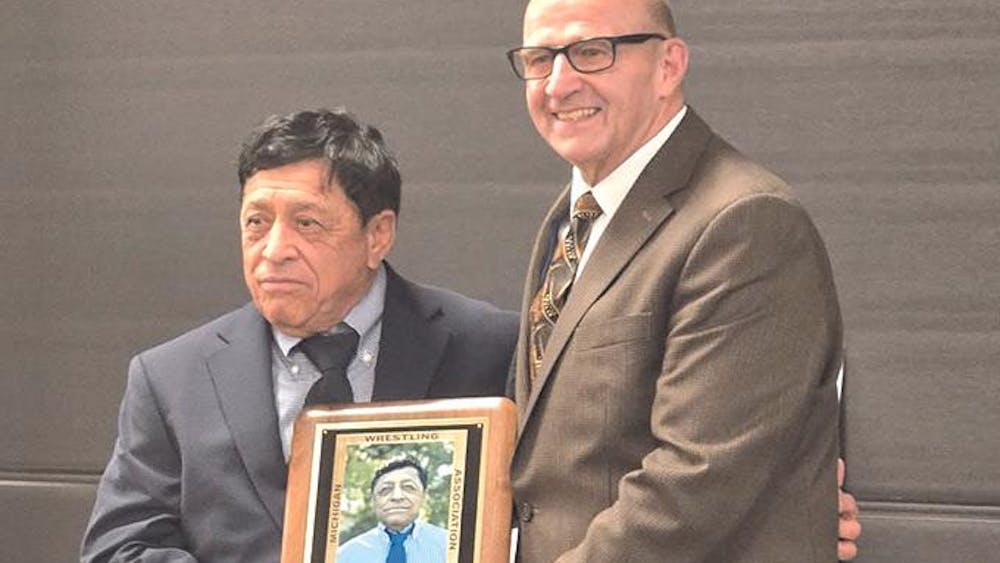Charles A. Hawley was an early pioneer of Shelby. He was born in Bridgeport, Vt. in 1831. He was the first of six children and, unfortunately, the only one to survive. His mother passed away in 1843, and then “the five children younger than himself died, one after another, commencing with the youngest,” as Page puts it in his History of Oceana County. Like many early pioneers, Hawley was thrust into responsibilities at a very young age. He emigrated to St. Lawrence County, New York, with his father in 1843 and began working for a farmer at the age of eleven (“with his father’s consent,” Page tells us), so that he could afford his board, clothing and schooling, and it seems the young man’s life would follow this pattern for several years. At first, he worked for different farmers. Then, at the age of 17, he “engaged himself to a farmer for four years, to receive his board, clothing and three months’ schooling each Winter, and $100.” However, Page then mentions that he “got his schooling and $96 worth of clothing, but not the $100.” Nevertheless, Hawley then rented the man’s farm for one year, after which he took off for Skaneateles, New York, with $12.52 in his pocket.
While in Skaneateles, he worked farms in the summer and taught schools in the winter. He also got married in 1855 to a woman named Electa E. Weaver, “a young lady very highly esteemed.” Nearly two weeks later, he moved to Chicago, his wife following some months later, and began working in a hardwood lumberyard for two years. He soon bought a 200-acre farm just 16 miles from Chicago. He made a down payment of $1,000 and signed a contract to pay the remaining $7,000 in installments. This was to be “the first and only contract he ever made that he did not fill.” He worked the farm for two years, and then the hard times of 1857 “finished him.” He gave up on the farm, sent his wife and child to her parents, and began work piling lumber for a dollar a day, as well as serving as the collector, janitor and usher at the Plymouth Congregational Church. After about four months of this, he rented a house in Chicago and sent for his wife. He began working as a laborer, clerk, lumber inspector and lumber commissioner in a hardwood lumberyard, but it would seem that Mr. Hawley could not get a break. The Chicago fire of 1871 struck and “burned all he had in Chicago—lumber, books, accounts, and papers of all kinds; everything he had except his humble home at Park Ridge, Cook Co., Ill.”

For those familiar with Oceana’s history, you may be able to see how, through all of this misfortune, the elements of Hawley’s life were aligning in a way to bring him to Oceana County. Prior to the fire, Hawley was engaged in lumbering, and following the fire he had nothing. Well, if you follow the logs that were shipped across the lake to rebuild Chicago, you arrive in Oceana, where the lumber trade was booming. “Suffice it to say,” wrote Page, that during the good times (for lumbermen) following the fire of 1871, until the Fall of 1873, when Jay, Cook & Co. failed, followed by the failure of very many others, he became manager and part owner of the Shelby sawmill, August 27, 1873.” Hawley managed to buy the mill during the subsequent winter. The mill seemed to be plagued with unforeseen legal expenses for a few years, and in 1878, Hawley spent $750 on some new boilers. Then, in 1879, “the mill blew into thousands of atoms, by the explosion of the new boilers, killing the engineer, James Ryder, and injuring for life E.C. Hurd; slightly injuring many others.” According to Page, “every casting, shaft and wheel made of iron was destroyed, except the saw frame and carriage.” But we could say nothing of Hawley if not that he was enduring. He rebuilt the mill and had it up and running a mere 21 days after demolishing what was left of the old one.
Mill owners were highly influential in old Oceana, and Hawley was no different. According to Page, “he trusted every man to lumber that wanted to build,” and he “always made a practice of giving employment to every man that applied, if he lived in Shelby.” He was an active member of the Congregational Church, and Page describes him by saying he was “a very genial, kind, affectionate man, he has one failing—lacking courage to dun the men he trusted.”













